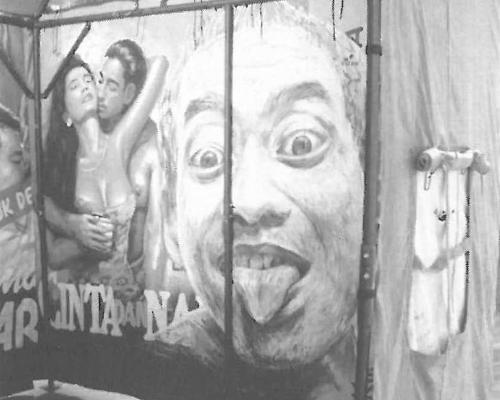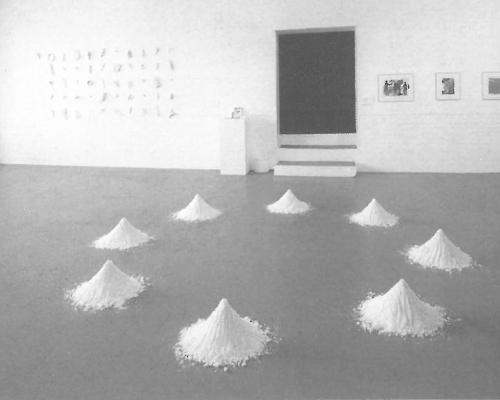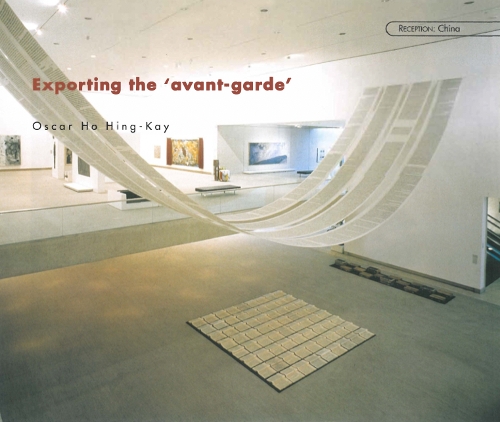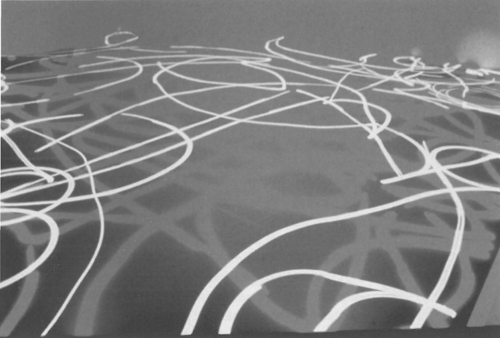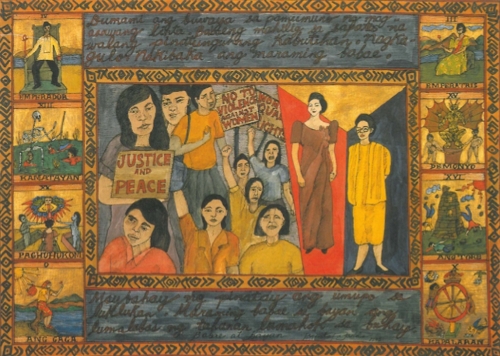.jpg)
First there was the Word. We are constructed in language. This is the structural frame of the conventions in which we think, in which we communicate. Our capacity to impress the depth and unique nature of our individual psyche is determined by facility in language. So too our capacity to connect and to become effectively social. So too the degree of power and control which we can exert in determining our operation in the world. If we do not learn it, we invent it. I met a man who was functionally illiterate yet he constructed a language of symbols sophisticated enough to express complex abstract concepts.
In a series of diaries over many years he meticulously recorded the details of his life, all noted in a peculiar hieroglyphic system known only to him. Some years later, after becoming proficient in standard English, he returned to his diaries and was shocked and saddened to find that they were all but indecipherable. They had become closed books to him. The immense significance of language and an analysis of its frighteningly complex operation in the world has been the subject of perhaps more research than any of the operational and social structures which humans have invented. For a time in the 1980s the immense deconstructive analysis of language blossomed out from its base in French literary theory to serve the philosophical and psychological investigation of communication modes in all areas, somewhat more attenuated in the visual arts through its application to iconography and aesthetics, for which it was generally appropriate.
But I'm not Saussure. The limit of usefulness of the semiotic analytical program was often discovered in the translation of the experience of making and apprehending the peculiar nature of the activity of art. Phenomonolgy seemed to be the only philosophical system capable of confronting, let alone explicating the process.
Brigita Ozolins' My Hands are tied reinforces the necessity of the visual and of the act as the central and primary defining elements in confirming the vital place of contemporary art as a unique component of our cultural discourse. It is this cultural space which provides an opportunity to entangle with concepts in such a way that they pick up where the linguists and cultural theorists take refuge in the 'ineffable'. That which is truly 'ineffable' is really only that which is too complex or too subtle to allow for rational analysis and categorisation in and through language; (or is simply beyond the linguistic and intellectual capacities of the writer to elucidate).
In a small space no larger than a domestic room is a wall of books, denuded of their covers and stacked floor to ceiling. Embedded within them is a small writing desk, of the nineteenth century variety, its surface only large enough to contain the paper, pen and inkwell of a writer. At the desk, facing the wall, sits the artist engaged in an obsessive act of writing. Pages are torn, one by one from a number of books and over each page, in a neat script is written the words my hands are tied until the page is covered. Each page is then tacked onto an adjacent wall which is slowly covered over the duration of the performance. Behind the artist are towers of books, also bereft of their covers. There is about this place something of the sanctuary and sanctity of an old library or bookshop. The artist is enshrouded in the inaccessibility of work, of the intensely private act of writing. The library ambience and the knowledge that this is performance serve only to further cocoon the performer. We respect these public privacies. There is the faint and generous odour of comfort here. There is the soft must of old paper and the warm honey glow of residues of glue. The books are bound together in bundles and are at once inaccessible and sweetly familiar.
This installation is as much about the book as it is about the text. It's as much about reading as it is about writing. The Zen-like practice of the performance is hypnotic. The viewer senses that this is also the case for the performer. The metaphor is emerging. Is this about the futility of a search for meaning, the attempt to pin meanings through a submission to process and repetition? One is forced to the realisation that it is through language that we attempt to create definitive meanings and that all such hopes are necessarily thwarted. All utterances are conditional and contextual. All attempts to understand the universally 'true' nature of things are doomed to failure and frustration. We persist as it is all we have. We encounter the library, replete with the promise of knowledge revealed, neatly housing the unique aspirations of a million minds to tell a story, to strive for some kind of enlightenment, to connect with a world, to travel beyond time, to speak to generations. And yet it is as daunting as it is attractive. Is it the place where ideas come to rest, often remaining undisturbed for centuries? The dust accumulates, hinting at the ultimate fate of all things.
Ozolins has created a richly poetic distillation, a synthesis of all these associations, deftly and subtly and with characteristic totality of resolution. She brings to this small space and these simple things all of these concepts, all of these experiences. The ambiguity is controlled, the paradoxes stand, the nobility and futility of the enterprise sit equally. Through these silent acts Ozolins has contained the essence of our relationship with the text which shapes us.

